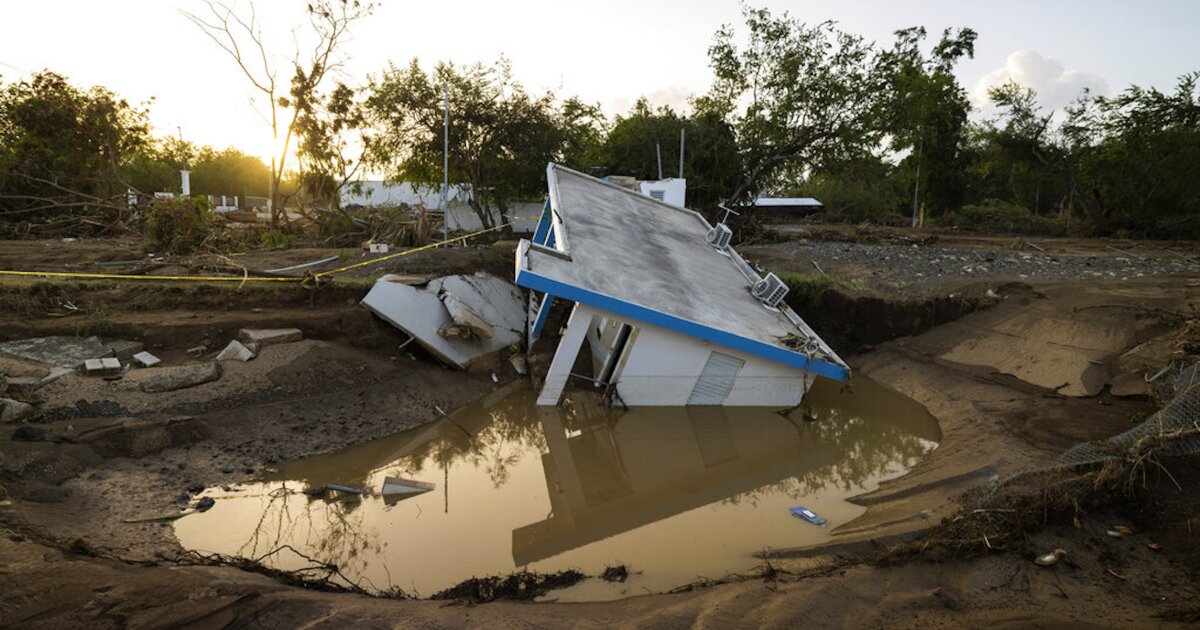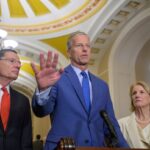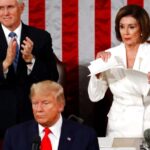

The White House pushed back on suggestions that it was slow-walking a decision to lift a union-backed century-old shipping rule to speed fuel transport to Puerto Rico in the hours before “a temporary and targeted” waiver was ultimately granted.
Puerto Rican officials repeatedly asked the Biden administration to waive the Jones Act to allow a tanker loaded with diesel to access a port on the island, as destruction from Hurricane Fiona has roiled the power supply. The Department of Homeland Security announced late Wednesday that it would do so.
“In response to urgent and immediate needs of the Puerto Rican people in the aftermath of Hurricane Fiona, I have approved a temporary and targeted Jones Act waiver to ensure that the people of Puerto Rico have sufficient diesel to run generators needed for electricity and the functioning critical facilities as they recover from Hurricane Fiona,” Homeland Security Secretary Alejandro Mayorkas said in a statement. But the timeline drew questions, as some wondered whether political dynamics slowed the process.
BIDEN ‘LASER-FOCUSED’ ON PROVIDING HURRICANE RELIEF TO PUERTO RICO
Puerto Rican leaders had urged President Joe Biden to act, with Gov. Pedro Pierluisi warning him in a letter that a fuel shortage could run aground the island’s essential services. A temporary waiver would ease supply constraints, Pierluisi said, allowing a foreign-flagged vessel idling off the island’s coast to unload its cargo.
It took more than a week after requesting the waiver for BP, the oil giant operating the vessel, to receive the Biden administration’s response.
Pierluisi thanked Biden’s team for the waiver in a tweet.
The pace of past waivers suggests a faster turnaround was possible. During the Colonial pipeline outage last year, the Biden administration lifted the rule temporarily within days of receiving requests.
After oil refiner Valero asked for a waiver on May 11, Mayorkas approved the waiver two days later. On May 14, the government issued a second waiver following a May 12 request by U.S. refiner Citgo.
Biden promised to be the most pro-union president in history, leading to speculation he was trying to balance different interests and constituencies.
“Ultimately, it’s a political decision,” Colin Grabow, a research fellow at the Cato Institute, told the Washington Examiner, adding that the Biden administration was “playing for time.”
“I think they’re hoping they can slow-walk this a bit and some vessels will show up with the diesel, and they won’t need the waiver,” Grabow added.
Federico A. de Jesus, a Democratic consultant and member of former President Barack Obama’s White House Task Force on Puerto Rico, blamed the delay on political maneuvering by the current White House.
“It’s a political decision. … This is such an emergency they should be able to find a justification pretty quickly,” de Jesus told the Washington Post. “The lawyers can justify it in many ways, as they did for these other two cases. It does not hold water to just blame the bureaucrats.”
Biden has long supported the Jones Act, reiterating his position in a “Buy American” executive order days after taking office.
But a White House official told the Washington Post that the president supported the waiver in this case and was personally tracking the issue.
Still, officials said earlier this week that Biden does not hold the legal authority to suspend the rule alone.
Among the hurdles, Federal Emergency Management Agency Administrator Deanne Criswell told reporters at the White House on Tuesday, is “a legal obligation to ensure that each waiver request meets the legal requirements of Congress.”
According to the law, DHS must assess whether a waiver is necessary for national defense.
The White House referred questions on the timeline for a decision and Biden’s position to DHS.
The delay has spotlighted the law as pressure mounts on Biden to confront Puerto Rico’s pressing humanitarian demands. Over 700,000 were still without power at the start of the week after the hurricane touched down on the island on Sept. 18, leaving its residents in the dark.
The White House did not publicly say whether Biden personally supported lifting the rule while appealing to the legal process.
CLICK HERE TO READ MORE FROM THE WASHINGTON EXAMINER
Criswell stressed on Tuesday that a final decision would rest with Mayorkas.
The American Maritime Partnership, an industry coalition representing U.S.-flagged vessels and unions that endorse the Jones Act, said U.S.-flagged and staffed Jones Act-compliant vessels continue to provide the island with fuel.
The group pointed to an interview with Puerto Rico’s Ports Authority director in which he said foreign vessels are also supplying it with diesel. But Jose Piza also urged a faster response on the waiver for the “much-needed product.”






